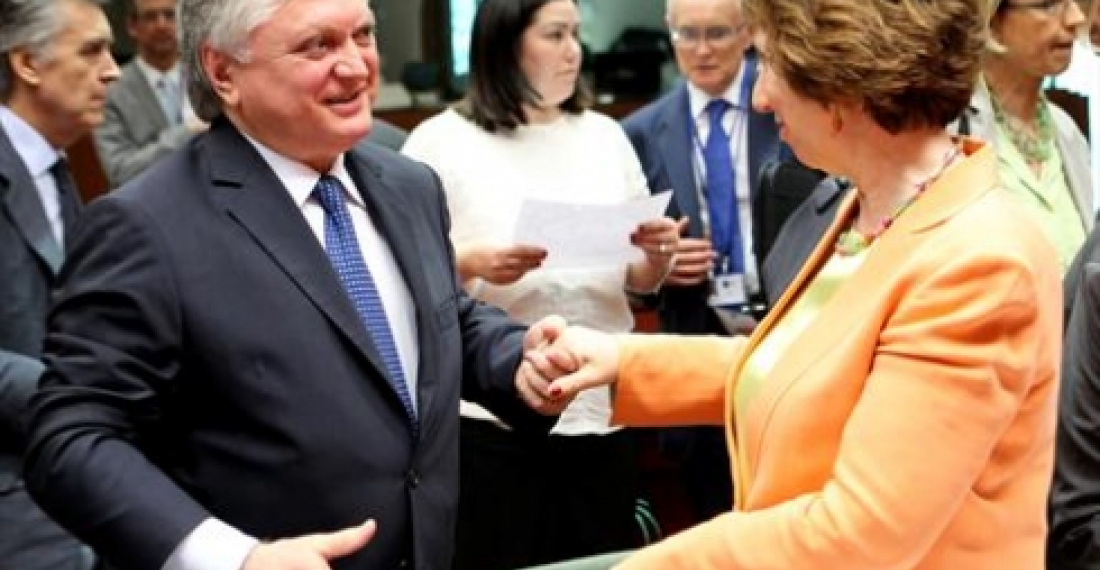There was a feeling of optimism in the air yesterday as Foreign Ministers from the 28 EU members states and those from the six Eastern Partnership countries met in Brussels to prepare for the landmark summit of Heads of States that will take place in Vilnius in November.
A statement from Catherine Ashton, the EU High Representative on Foreign and Security Policy said that so far, important progress has already been achieved. Catherine Ashton underlined that the efforts must continue so that the summit will represent a milestone in the relationship between the EU and partner countries. She stressed that - provided that the remaining steps will be taken in the weeks ahead - the Vilnius summit would be a summit of delivery, both in terms of political association and economic integration.
Earlier in the day it was announced Georgia had finalised the discussions on the Deep and Comprehensive Free Trade Agreement with the EU. The Agreement will now go through the legal procedures on both sides on its way to being adopted, but already a number of its provisions can start to be implemented.
A jubiliant Georgian Foreign Minister, Maia Panjikidze, told a meeting at the Brussels Press Club yesterday afternoon that the Vilnius Summit will make the process of the Europeanisation of the South Caucasus irreversible. Both Armenia and Georgia, as well as Moldova, are expected to initial their Association Agreements with the EU in Vilnius. Negotiations with Georgia and Moldova have now been successfully concluded, and the negotiations with Armenia are in their final stages.
A final stumbling block seems to have been the wording concerned with the separatist territories. Georgian Foreign Minister Panjikidze said that the matter has now been resolved and that there would be a reference in the text to the territorial integirty of countries, but no direct reference to "occupation or de-occupation".
source: commonspace.eu
photo: EU High Representative on Foreign and Security Policy Catherine Ashton greeting Armenian Foreign Minister, Edward Nalbandian in Brussels yesterday before the meeting of the Foreign Ministers of the EU and Eastern Partnership countries. (picture courtesy of the Press Service of the EU).







